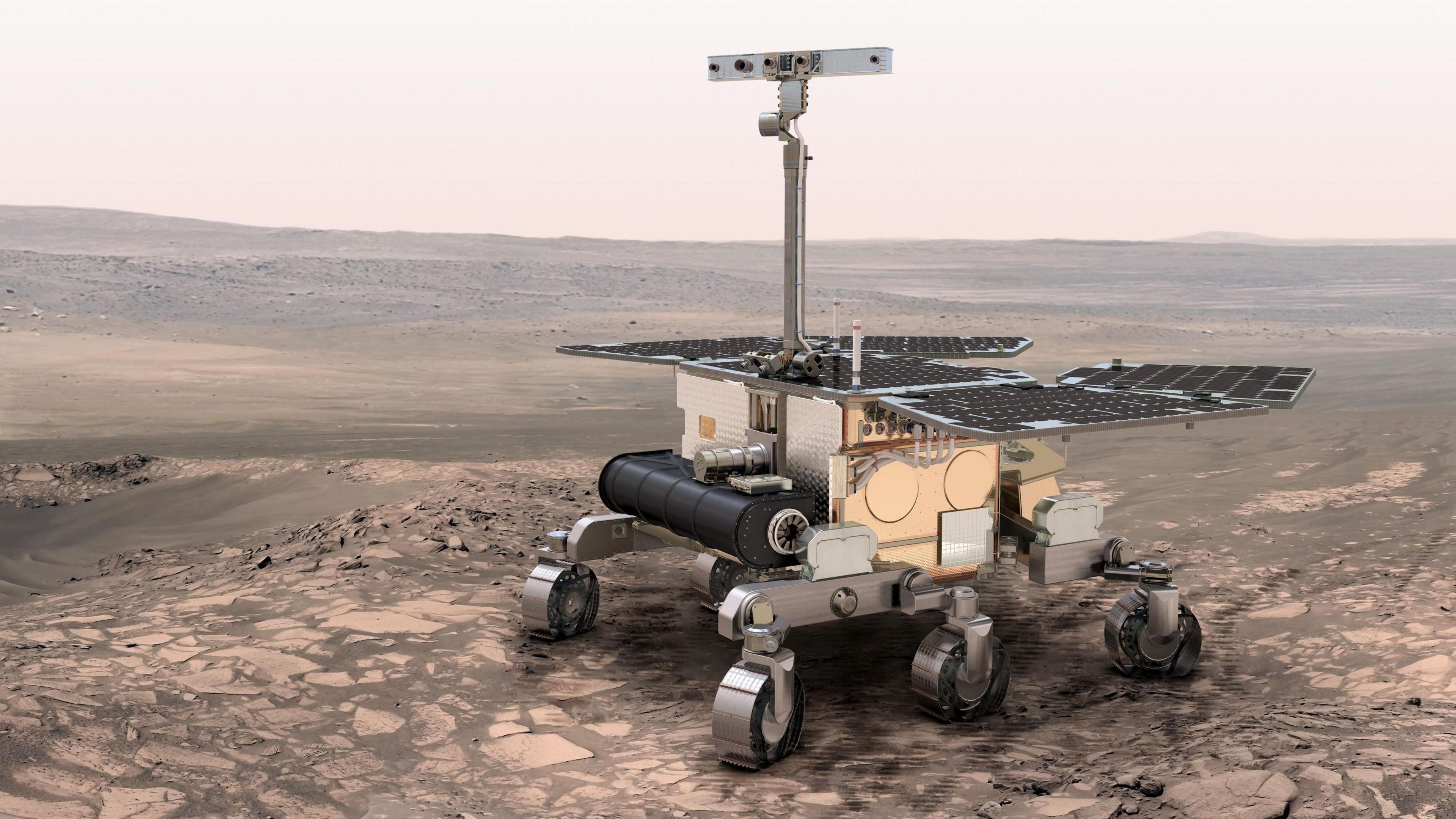The Mars mission being tested in the Highlands

Lower Diabaig is a small community on the West Highland coast of Scotland
- Published
Scientists hunting for life on Mars are focussing their attention on somewhere a bit unexpected.
They have been testing high-tech equipment - not in a special simulator or mock up of the red planet - but in the remote town of Lower Diabaig in the Scottish Highlands.
And why? Because rocks on the banks of Loch Torridon are similar to those on the surface of Mars and perfect for testing their tech.
And that tech includes parts from a special rover just like one they're aiming to drive on Mars itself.
"Before we send any technology to Mars, we want to put it through its paces, and understand how well it works and how [best] to use the data we get from it", said Dr Claire Cousins, who is part of the testing team.
Mars was once home to sandy beaches like Earth, new study suggests
- Published25 February
Space 2025: What are the big events to look out for?
- Published21 December 2024
Space food: Experts try to work out how to feed astronauts in space
- Published28 April

An artist's impression of the ExoMars rover on Mars.
Dr Claire Cousins is from the University of St Andrews and is working with the European Space Agency (ESA) on the ExoMars Mission.
According to Dr Cousins, the team of international scientists are setting themselves a "big goal", trying to understand the ancient environment from about four billion years ago.
The trials have included cameras of the type to be used as the rover's "eyes", and kit that can detect ancient biology preserved in the rock.
Dr Cousins explains there are only a few places on Earth that are suitable for this kind of testing, and these billion-year-old mudstone are perfect.
"They haven't been cooked and squeezed and crushed under mountain belts.
"They have been beautifully preserved - a slice of time," she said.
"We don't know yet if there was ever life on Mars, but these are the kinds of rocks that are going to preserve it," Claire added.
What is the Mars mission all about and when will it take place?

The surface of Mars is quite different today compared to what scientists believe it looked like billions of years ago
The ExoMars rover was due to land on Mars back in 2021 but complications meant it's launch has had to be delayed until 2028.
If all goes to plan, the rover will land on Mars in 2030.
It is the first time scientists in Britain have built a rover.
It will drill into the surface of Mars in order to study the composition of the planet, and investigate whether there was once life there.
